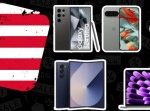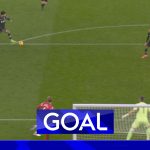YinYang/Getty Images
- Many brick-and-mortar banks will still allow you to cash a check even if you don’t bank with them.
- Most banks will require the check to be written by someone who is part of the bank.
- Policies vary at each bank, but generally, you’ll be charged a fee of around $7.
- Read more stories from Personal Finance Insider.
When you receive a check from another person, you usually don’t want to keep it as a check for long. However, if you don’t have a bank account or aren’t nearby your bank due to travel, your situation becomes a bit trickier.
Banks aren’t required to cash checks from people who aren’t customers. That being said, many brick-and-mortar banks will still cash your check even if you don’t bank with them. However, there might be some additional rules you’ll have to follow.
What do you need to cash a check?
Before you visit a branch, make sure to bring at least one US ID.
If you don’t have a US ID, you’ll need to go to a bank or credit union that lets you use an alternative form of ID, like a foreign passport. Otherwise, a bank could turn you away since it can’t determine whether the check belongs to you.
Can you cash a check at any bank?
No, you can’t cash a check at any bank. However, several institutions, especially national brick-and-mortar banks, have policies or services that allow you to cash a check even if you don’t have an account with the bank.
For example, Jeremy D. King, a spokesperson for Regions Bank, said Regions permits people who do not have an account with Regions to cash checks. Non-customers would have to enroll in a check-cashing service.
“Each financial institution maintains its own check-cashing policies, so we encourage you to check with other banks first to determine their policies – including policies on whom may cash a check and any associated fees or processes that could vary,” King also told Insider.
Cashing check policies at different banks
Below, you’ll get an overview of how ten national banks cash checks from non-customers:
- Bank of America: Bank of America permits checks written by Bank of America customers. Checks with a value greater than $50 will be charged $8 per check.
- Chase: Chase will cash any checks issued by the bank. Fees vary depending on the amount written on the check. For instance, a $100 check would require a $10 fee.
- Wells Fargo: Wells Fargo will let you cash a check for a $7.50 fee if the person who wrote the check is a Wells Fargo account owner.
- Citibank: Citibank allows non-customers to cash a check for a $7 fee.
- Capital One: Capital One will let you cash a check if the person who wrote it has a Capital One account. Fees will vary depending on where you live, so you’ll have to contact the nearest bank.
- Truist Bank: Truist will cash any Truist checks. There’s no fee if the value of the check is less than $50. If it’s greater than $50, you’ll pay $8. These fees do not apply if you live in New Jersey.
- PNC Bank: You won’t be charged fees if the check is $25 or less. However, for checks greater than $25, you’ll be charged 2% of the check amount.
- KeyBank: KeyBank permits checks under $5,000 and written by someone who has a KeyBank account. Checks under $15 will not require any fees, but if your check exceeds that amount, you’ll have to pay a fee. Fees vary by state, but if you go to a KeyBank Plus branch, you’ll be charged 1.5% of your check’s total amount.
- Citizens Bank: There’s a $7 fee to cash a check if you’re not a client.
- Regions Bank: Regions Bank has a check-cashing service that doesn’t require an account with the bank. If you’re cashing a Regions check, the fee will vary from $0 to $20, excluding two-party checks. If you’re cashing a payroll or government check, you’ll pay 1.5% of the check amount. If you cash any other check, you’ll have to pay 4% of the value of your check amount.
If your bank isn’t on this list, you still might be able to cash a check even if you’re not a customer. Contact the bank’s customer service before your visit to make sure you’re aware of the bank’s policies.
Powered by WPeMatico






